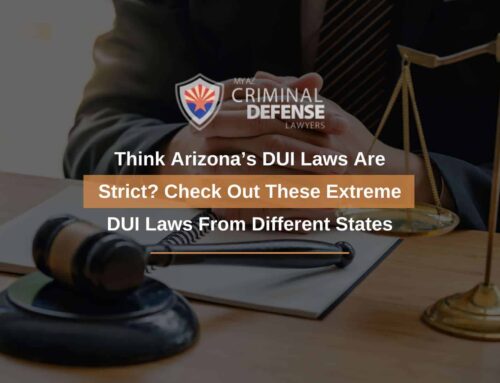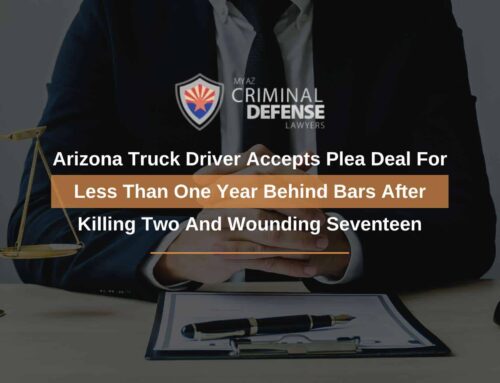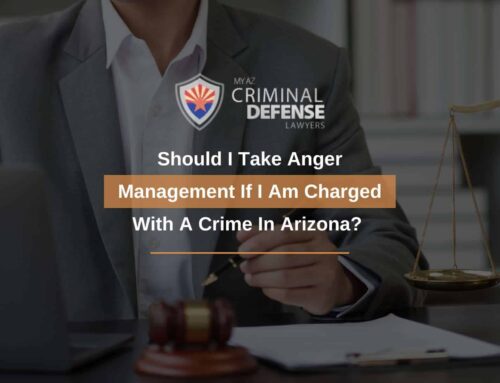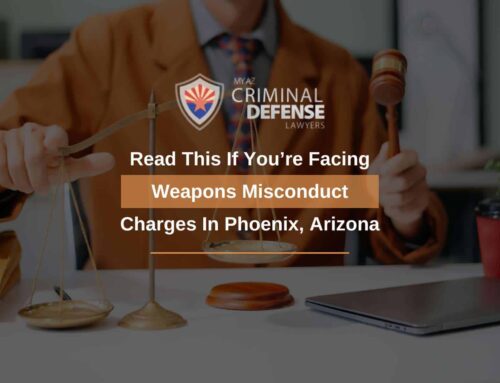Seal Your Criminal Records in Arizona
Sometimes, all it takes is one mistake or poor decision to create a black cloud that will follow you for years. When that black cloud is a mark on your criminal record, it could impede your choices across all areas of life. Employers are less likely to hire and promote those with a criminal past, and landlords are less likely to rent to convicted criminals. A convicted criminal could even have a harder time getting approved for a home mortgage and other types of loans from their bank. These are only the institutionalized effects of having a criminal record. Criminal records are accessible to the public and can hurt a convicted criminal’s social life. Friends and family members may not want to associate with a defendant declared guilty of certain criminal charges. Gossip about a criminal history can spread quickly among co-workers and other social groups. To reduce these kinds of effects after completing the requirements of one’s criminal conviction, there are only a few options for how to proceed in Arizona. One of the options available to some convicted criminals in Arizona is criminal record sealing. To learn more about sealing your criminal record from one of our experienced criminal defense attorneys, call 480-448-9800.
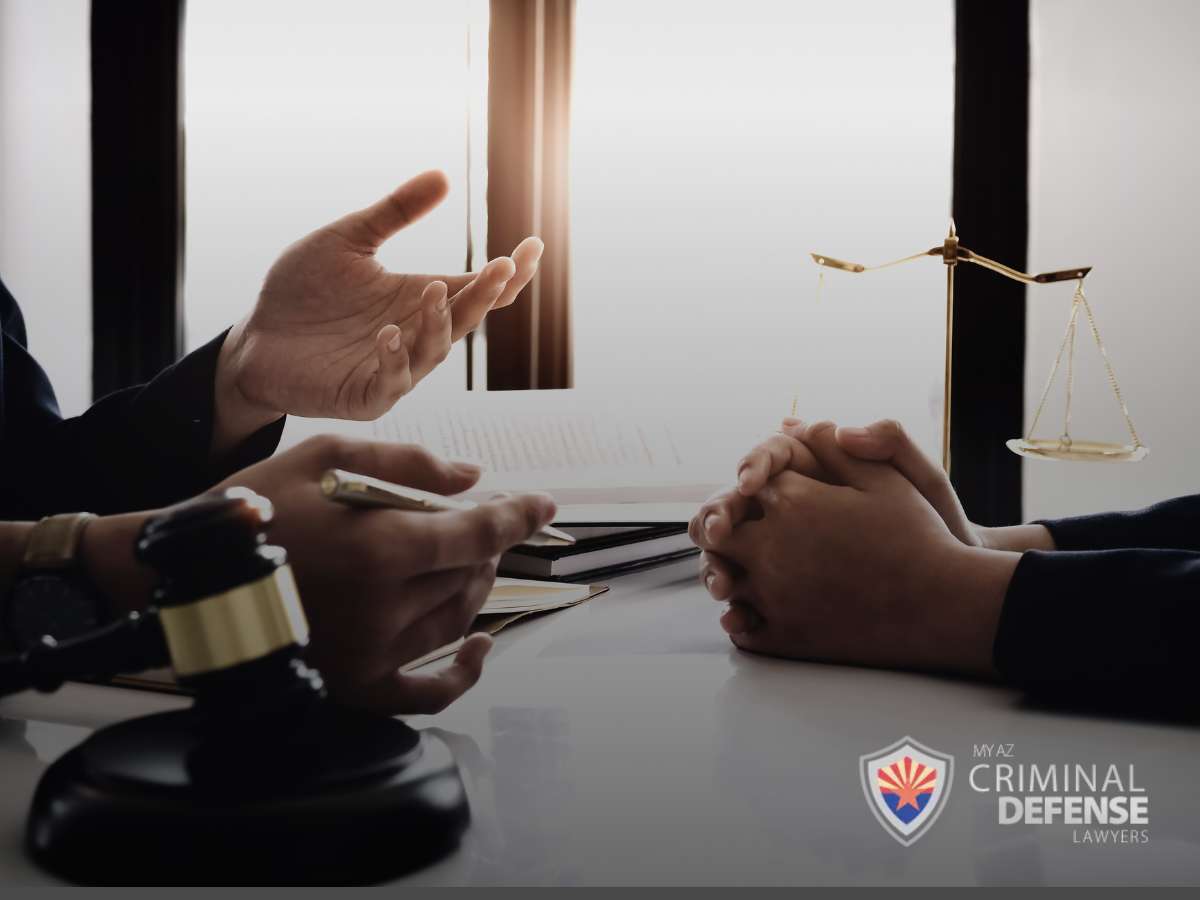
Arizona Revised Statutes Section 13-911. Sealing of Arrest, Conviction, and Sentencing Records
A.R.S. § 13-911 is Arizona’s law regarding sealing a criminal record. This law is relatively new and came into effect on December 31, 2022. There are three situations someone might seal their criminal record under A.R.S. § 13-911:
- The person was convicted of a criminal offense and completed all of their sentencing requirements, including paying victim restitution, if applicable;
- The person was charged with a criminal offense but that charge was dismissed, or the person was declared not guilty at trial;
- The person was arrested but never charged with a criminal offense.
The court can’t decide on a petition to clear someone’s criminal record for at least 30 days after filing. This is to give the prosecutor and any victims involved in the case time to prepare an argument against sealing the applicant’s criminal record. The judge can proceed with their decision without a hearing if no parties object to the record sealing.
Waiting Periods to Seal Criminal Records
Defendants convicted of many types of misdemeanor charges are eligible to seal their records as soon as they complete all of the obligations ordered by the court during their sentencing. They must not have subsequent convictions when they make the request. For other criminal defendants, there are waiting periods based on how serious the charges were. A defendant must wait two years to seal their criminal records after a class 2 or class 3 misdemeanor. The waiting period increases to three years for a class 1 misdemeanor. For defendants convicted of a class 4, class 5, or class 6 felony, the waiting period to seal a criminal record is five years. A defendant convicted of a class 2 or class 3 felony must wait 10 years before requesting that the court seal their criminal record. The defendant should wait an additional 5 years after a subsequent felony offense.
What Sealing a Criminal Record Doesn’t Do
Sealing one’s criminal record may not have the full rehabilitative effects that a convicted criminal is seeking. A sealed criminal record is inaccessible to the public eye, but can still be used for several purposes. A sealed criminal record can still be used to:
- Satisfy an element of a criminal offense
- Serve as a historical prior felony conviction
- Impeach a party or witness in a subsequent trial
- Enhance the sentencing of a subsequent criminal offense
- Used as a conviction that would otherwise be admissible
Specific Exceptions
There are certain times that a person must state that they have been arrested, charged, or convicted of a criminal offense, even if that person has successfully sealed their criminal record. If the offense was a burglary or theft crime, the person must disclose a sealed criminal record on an application for a job that requires entering and performing services inside a residential structure. A sealed record indicating child abuse or aggravated assault must be disclosed if the person is applying for a job that involves supervising, educating, or administering care to a minor. Certain violent offenses must be disclosed if the person is applying for a job involving the commercial or private operation of a motor vehicle, boat, or airplane. A person must also disclose a sealed criminal record indicating vulnerable adult abuse if the person is applying to supervise or administer care to a vulnerable adult or a person 65 years or older. Theft, fraud, and related charges must be disclosed if a person’s job involves accounting, overseeing, transporting, handling, or managing another person’s money or financial assets. For more information about exceptions to a sealed criminal record in Arizona, schedule your free consultation by calling 480-448-9800.
How Do I Convince the Court to Seal My Criminal Record?
While some civil rights are restored automatically after a criminal defendant has completed their court-ordered penalties, the criminal record sealing process doesn’t occur automatically. Someone seeking to seal their criminal record should first make sure they have completed all of the applicable requirements before applying. They should also make sure to apply to the right court. The application should include information about the arrest, charge, or conviction. The application should also include documentation on any other information the applicant wants the court to consider when making its decision. The person doesn’t have to pay a filing fee for a petition to seal their criminal record. The applicant should be sure to include copies of pertinent documentation rather than originals. For more information about the process of sealing criminal records in Arizona, call 480-448-9800 for your free consultation with our criminal defense firm.
Sealing Criminal Records vs. Expungement
Contrary to common belief, sealing a criminal record isn’t the same thing as expunging a criminal conviction. While the two processes are similar, there are some key differences between them. Expungement wipes a conviction off of a defendant’s record completely instead of simply sealing the defendant’s criminal record. Expungement may be available in other jurisdictions, but the state of Arizona doesn’t allow for expungements unless the defendant was convicted of an eligible marijuana offense. Someone who has had their record expunged instead of sealed can answer “no” on the scenarios described above in specific exceptions.
Let Our Maricopa County Criminal Defense Team Fight for Your Post-Conviction Relief
Sealing your criminal record might be the step it takes for you to move past a criminal history and advance in all areas of your life. You may also benefit from other forms of post-conviction relief, including restoring your civil rights. When you want to simplify the post-conviction relief process and increase your odds of success, you should retain a criminal defense attorney to handle your case. At My AZ Criminal Defense Lawyers, we are experienced in helping our clients regardless of their situations. When you’re ready to learn more about sealing your criminal records, contact us through our online form to schedule your free consultation with our firm or call us at 480-448-9800.

My AZ Criminal Defense Lawyer
Mesa Location:
1731 West Baseline Rd., Suite #100
Mesa, AZ 85202
Office: (480) 448-9800
Glendale Location:
20325 N 51st Avenue Suite #134, Building 5
Glendale, AZ 85308
Office: (602) 509-0955
Tucson Location:
2 East Congress St., Suite #900-6A
Tucson, AZ 85701
Office: (520) 441-1450
Avondale Location:
12725 W. Indian School Rd., Ste E, #101
Avondale, AZ 85392
Office: (623) 499-4222

